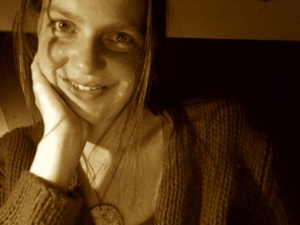New Times, New Voice
Over the last several months, I’ve taken a creative break from my novel project and am working on a new essay collection. In this transition, I’ve encountered an interesting problem. Because I’m what you might call a “method writer,” one who tries to become her characters, I noticed that, even when writing a personal essay, I often slip into the unconscious patterns of my novel’s narrator. I’ve been using her buzzwords, her sentence structures, and her metaphors for so many years, some part of me seems to think they’re mine, too. Most egregious, I’ve even fallen prey to her logical fallacies, the ones I worked so hard to help her overcome by the end!
So, I’ve been actively trying to recultivate my authentic voice. I think sometimes we forget that our voice, in writing and in life, is dynamic; if it doesn’t change over time, it becomes stale and boring to us and likely to our readers. When I first started writing my novel, I was living in the West, teaching angsty teenagers, and interacting with all kinds of people without masks: How could I possibly have the same voice that I have now, working on these essays? In the course of drafting, revising, and polishing that manuscript, I also conceived, bore, and breastfed a human being. So, in order to find my new voice, I needed to spend time unlearning who I was and embracing who I’d become.
The particular essay I’ve been working on intensely over the last few weeks is a doozy. I’m attempting, in 6000 words or less, to fully explore my relationship to reproduction — including several pregnancy losses — and the societal underpinnings of shame attached to some of my experiences. Finding the right register, rhythm, and diction (read: voice) is paramount because I hope this essay will speak to and for those who have experienced this, too. After writing a few paragraphs last week — with a register that felt too submissive and diction that felt too easy — I commented the following, in bold, in the margin: “Remember that you were not comfortable at any point during these experiences. It’s okay for your reader to feel a little uncomfortable, right?” The next few hours were a wonderful experimentation in what that voice might be: a direct, precise woman who isn’t afraid to make her audience a little uncomfortable. Sounds good to me!
To write truly voice-driven work, we must continually define and redefine how we want to communicate; we must adjust to the ways we change over time and to the differing purposes of our work. Often, we have to step outside of the unconscious patterns we’ve built onto every page we’ve already written and say, “Hey! Is that still how you want to sound?” If not, I hope you’ll have the courage to discover what you might write to yourself in the margins.
ABOUT MEG: Megan Rich has written two books, a YA novel and a travel memoir, and is seeking representation for her third, a literary thriller inspired by The Great Gatsby. She took part in the highly-selective Sub-Concentration in Creative Writing at the University of Michigan, for which she completed a thesis of original poetry. In addition, she’s a graduate of the Lighthouse Writers Workshop Book Project program. With fourteen years experience as a creative writing teacher and mentor of students from ages twelve to eighty-five, she is passionate about helping others find and refine their voices on the page.
FIND YOUR VOICE WITH MEG: Learn to create a lasting connection with your readers, by developing your voice in Meg’s upcoming class Creating an Authentic Voice, February 1 and 8 from 6-8 p.m. via Zoom. In this two-session class, we will study voice at a deep level to learn the best techniques and generative exercises for connecting directly and quickly with our readers. In the second session, Meg will provide thoughtful feedback and advice on your work, helping you refine and deepen your voice in revisions. More information here.

